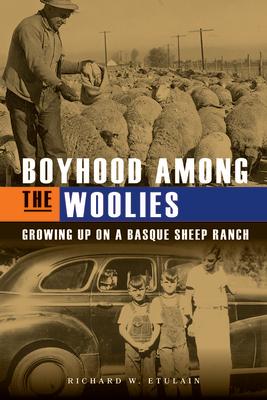Like many Pacific Northwest sheep herders, Sebastian Etulain emigrated from Europe's Basque country. He arrived in Yakima in May of 1921, convinced that hard work could overcome a lack of formal education and other shortcomings. It became his doctrine, and he advanced to ranch owner before marrying Mary Gillard Foster.
The Etulain sheep ranch lay among rock ridges, carved out coulees, rounded hills, and rich grasslands twenty miles east of Ritzville and almost seventy miles south of Spokane. Isolated and sprawling across nearly ten thousand acres, it included a sturdy ranch house surrounded by hay barns, a water pump house, corrals, and pens for sheep, goats, dogs, and pigs. The spread also had a milking parlor and creamery, as well as a blacksmith shop.
The Etulains adopted seasonal rhythms. For about one third of the year, their own abundant pasture grasses provided sufficient fodder. In the summer they moved most of their animals up to mountains around St. Maries, Idaho, to feast on rich grasses there. But from November to March the sheep and cattle needed purchased feed, and plenty of it.
Growing up on a sheep ranch afforded Sebastian's boys a magical upbringing with magnificent memories--despite the demanding work. In Boyhood Among the Woolies, his youngest son, Richard, reveals the family's story, a rare look at life on an early eastern Washington sheep ranch. He recounts endless chores related to supplying feed and water, lambing season, sheep shearing, keeping animals safe, and fighting one of the largest dangers--grass fires. He also describes family activities, relationships with hired staff, favorite dogs, brotherly pranks and shenanigans, schooling and church in Ritzville, Basque history, and more.
